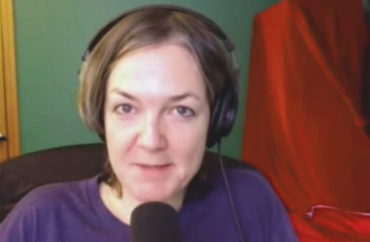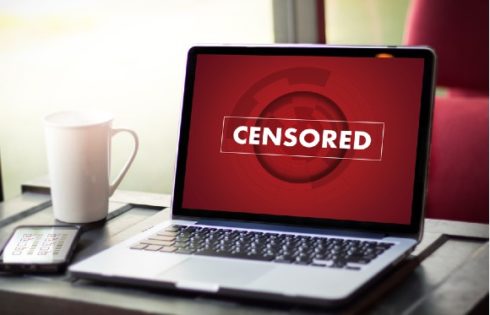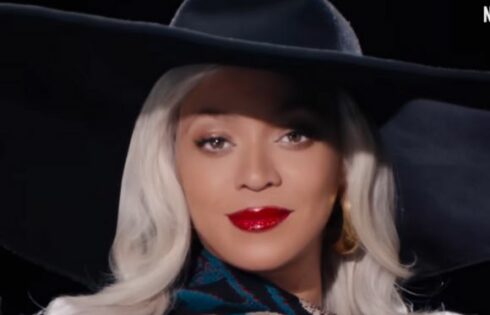
An employee at Smith College in Massachusetts has been making videos detailing the creation of a “hostile work environment” for her as a white person.
“I am very, very concerned about this issue, not just for the Smith community, but for communities at other colleges and workplaces too,” Jodi Shaw told The College Fix in an email.
Shaw, an alumnus of the school, currently works as an administrative assistant in the Department of Student Affairs at the elite women’s college.
“I’m white, which really shouldn’t be relevant, but my employer has made it clear that, not only is it relevant, but it’s possibly one of most important or if not the most important feature of me as a human,” Shaw said in a video posted to her YouTube channel. As of now, Shaw has made a total of four videos detailing her experience at work.
The first is titled: “Dear Smith College: I Have a Few Requests.”
“I ask that Smith College stop reducing my personhood to a racial category,” she says. Shaw also claims that “a lot” of other staff members feel the same way. Those staffers have not come forward.
Shaw goes on to offer a blistering indictment of critical race theory, attacking the idea that white people have built an unconquerable system of racism against which people of color are powerless.
“I believe my value lies in the quality of my work, the goodness of my deeds, the essence of my character, and the fullness of my heart, not my skin color,” she says.
According to Shaw, there is an “ever-present terror” at Smith “that any unverified student allegation of racism, or any other ‘-ism,’ has the power to crush our reputations, ruin our livelihood, and even endanger the physical safety of ourselves or our family members.”
Shaw later went on the Quillette podcast to describe what she was referencing.
On July 31, 2018, a staffer saw student Oumou Kanoute lounging in a dining hall. Believing she was out of place, the staffer called unarmed campus police to investigate. When the officer arrived on the site, he recognized Kanoute, saw nothing was wrong, and left.
Given a platform by the ACLU, Kanoute would claim that she was “racially profiled,” creating a firestorm on campus.
An independent investigation, however, found that the employee who called the police did not violate any campus policies.
After Shaw posted the first video to her channel, an HR representative came to a meeting with her supervisor, she told The Fix.
“We know about your video,” she told Shaw. Shaw was then assigned a “campus safety partner” — which is another name for a campus police officer — to whom she could turn if she felt “unsafe.”
“It felt strange and I do not know if Smith is actually concerned about me or just concerned about fulfilling obligations necessary to maintain their liability policy,” Shaw said, though she also said she assumes it is the latter.
Publicly, the college threw Shaw under the bus.
“This past week, an employee of the college posted a personal video to express their concerns about the college’s programming to promote racial justice,” wrote Smith College President Kathleen McCartney in a statement.
“This employee does not speak for the college or any part of the college. Further, we believe the video mischaracterizes the college’s important, ongoing efforts to build a more equitable and inclusive living, learning and working environment,” she wrote.
“The National Labor Relations Act protects employees who engage in concerted activities, including speech, with respect to workplace conditions,” McCartney writes.
Shaw is particularly skeptical of this sentence.
“I feel like this paragraph is code for: ‘We would fire her, but we can’t, because there’s this law that says we can’t…otherwise she would totally be fired,’” Shaw said in a second video deconstructing the statement.
One reason for her disbelief is the existence of a college policy protecting the “free exchange of ideas,” as Shaw calls it. According to Shaw, it is suspicious that McCartney cites the National Labor Relations Act rather than any freedom-of-expression policies at Smith.
In a third video, Shaw describes an experience she had while organizing a library orientation for students. As a candidate for a full-time library position, she was told to “do something crazy.” She decided to perform a rap to get students acquainted with the library system.
While she was preparing for the orientation, the incident with Kanoute occurred. According to Shaw, the campus “went into overdrive” and created a very “racially tense environment.”
A supervisor wrote in an email to Shaw, “The use of rap as a medium by a white staff member and student could easily be perceived as insensitive or cultural appropriation by incoming Smith students and could create a perception with students that the library is not racially sensitive.”
In an in-person conversation with the supervisor, Shaw asked if she would be able to do the rap if she were a person of color. Without hesitation, the supervisor replied, “Yes.”
“I honestly believed that, if I filed a complaint…nobody would ever hire me at Smith College or anywhere,” Shaw said.
Because of that event, as well as suspicion that the department would not want to hire a white person, she withdrew her application for the position and took on her current role.
After Shaw posted this video, The Sophian, Smith’s student newspaper, wrote a November 2 story on Shaw. While Shaw agreed to an interview with The Sophian, she is only directly quoted once.
Shaw told The Fix that, while she did not read the story, colleagues told her that “it did not do a fair job of portraying the issues which is unfortunate as it denies members of the Smith College community access to information in an objective, fair manner.”
The fourth and most recent video as of November 11 describes Shaw’s experience at a faculty retreat, the first day of which would see her and her colleagues discuss their “identities.”
Shaw was told to sit in a group and talk about her race “in the context of your childhood, your adolescence, and your college years.”
Uncomfortable talking about such subjects in a work environment, Shaw abstained from the discussion.
Hours later, a facilitator told the group, “Any white person who expresses discomfort about or distress or any kind of resistance toward talking about their race when asked to is not actually experiencing discomfort, so don’t feel like you should comfort them because it’s not discomfort. It’s called ‘white fragility,’ and it’s a power play.”
Shaw saw this as “a public humiliation.”
“This was framed as a manipulative maneuver on my part,” said Shaw. “It was an act of aggression, me saying I’m uncomfortable.”
Shaw told The College Fix that more videos are forthcoming.
They will feature her take on “specific incidents that took place on Smith College campus between [the Kanoute incident] to the present that I believe are all a product of and a contributor to the hostile environment at Smith and excellent examples of the ideological stranglehold Smith seeks to maintain over its community.”
The Fix contacted the Smith College public relations department, but it did not respond to repeated requests for comment. Shaw’s videos have garnered national attention from TV hosts such as Tucker Carlson, who had Shaw on as a guest.
“I consider myself a liberal,” Shaw told The College Fix, “and while I wish more liberals would speak out against this, I recognize it is an issue that concerns all of us and is an area that both conservatives and liberals can (and should) join forces on. This is not the time for division.”
“I continue to work in a hostile work environment that feels more hostile since releasing the video.”
MORE: Smith retaliates against profs who question admissions standards
MORE: You can’t say ‘crazy’ at Smith: Student paper replaces with ‘ableist slur’
IMAGE: Jodi Shaw Smith College Big Dig/YouTube
Like The College Fix on Facebook / Follow us on Twitter






Please join the conversation about our stories on Facebook, Twitter, Instagram, Reddit, MeWe, Rumble, Gab, Minds and Gettr.